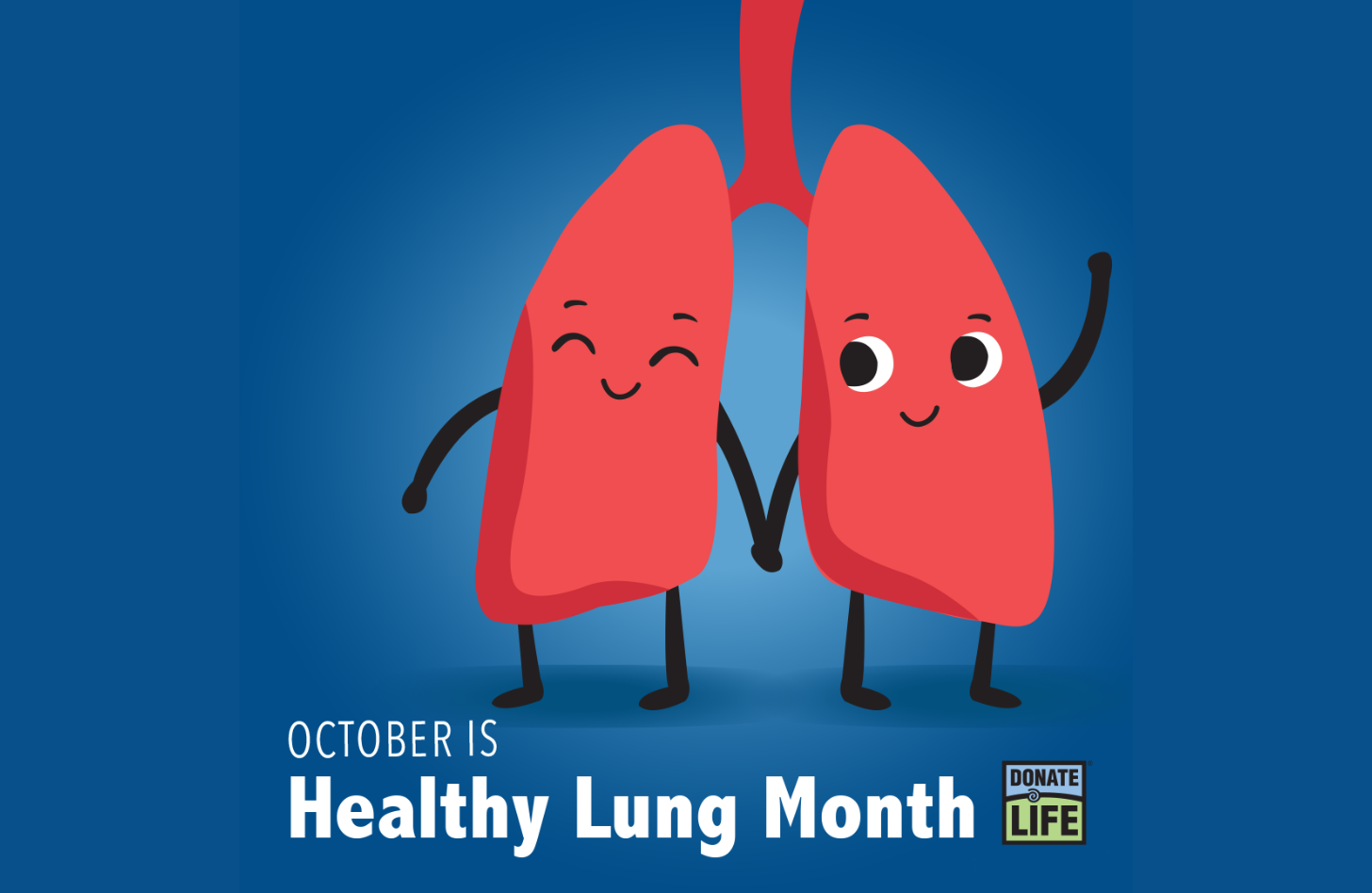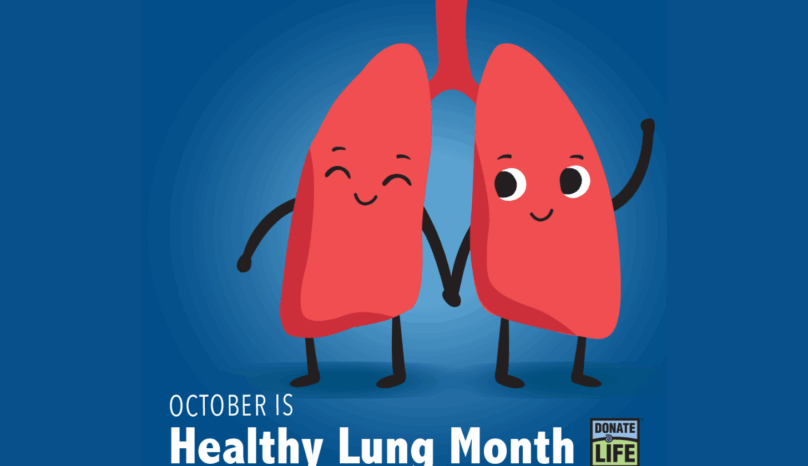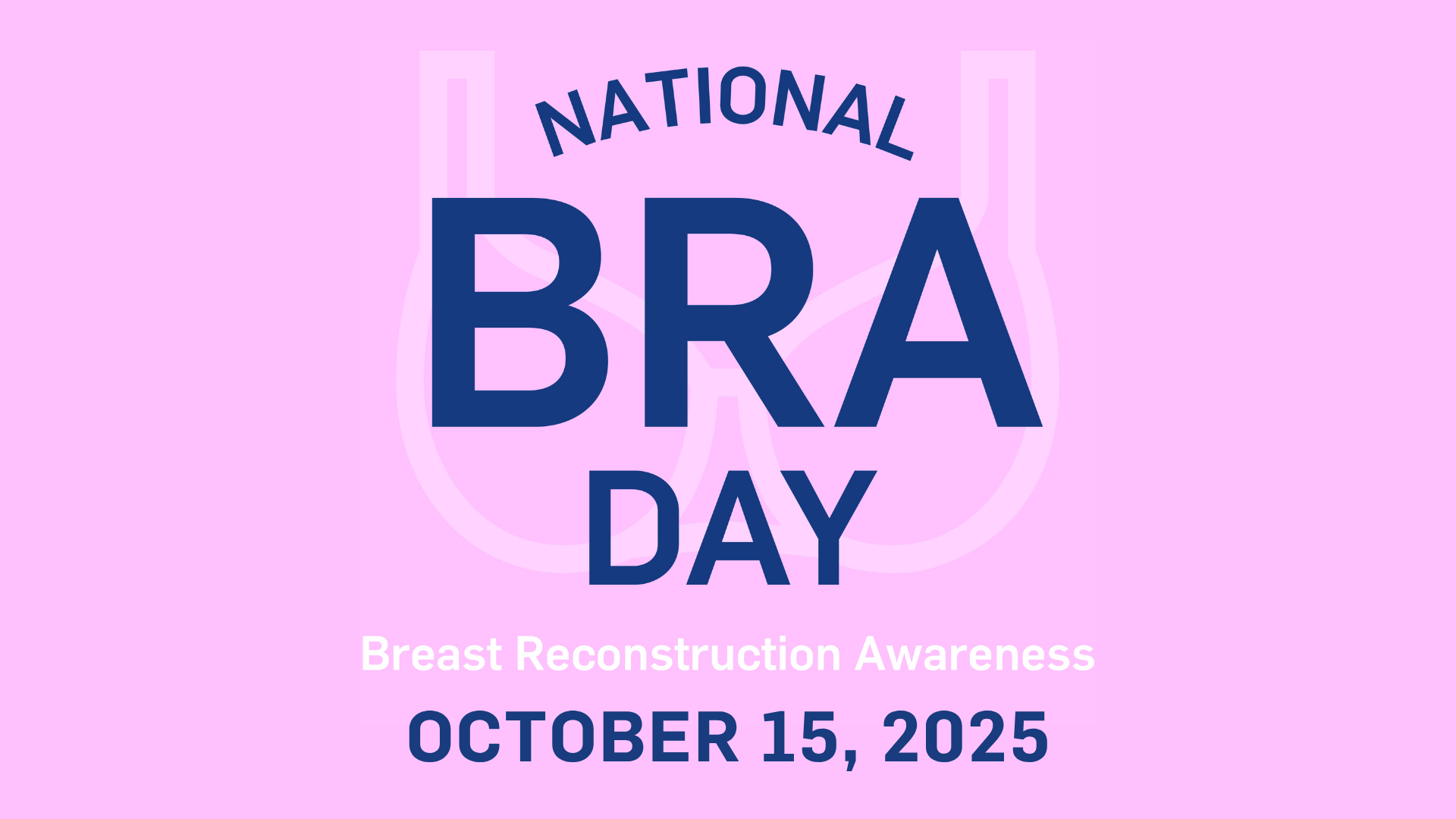A few weeks ago, we celebrated October as Liver Awareness Month, but it’s also an important month for raising awareness about something equally vital—your lung health. Healthy Lung Month serves as a reminder to prioritize the health of your lungs, learn the warning signs of lung disease, and adopt habits that keep your respiratory system in top shape.
The lungs are a powerful organ, tirelessly working to provide oxygen to your body. But when they’re not functioning properly, your quality of life can diminish quickly. For Jeff Voegtli, who had a double lung transplant in 2014, Healthy Lung Month is deeply meaningful. “I had a double lung transplant at Barnes-Jewish Hospital on November 8, 2014. I was transplant #1369,” he said. “It took me a year post-transplant to get my emotions together enough to write my donor family and thank them for the incredible gift of life they afforded me and list some of the life experiences I’d enjoyed with their precious gift.”
Jeff’s journey is a testament to the importance of lung health and the impact it has on every aspect of life. “As I near my 10-year post-transplant anniversary in great health, I can’t wait to write my donor family again and update them on what seems like my third bucket list. I’m eternally grateful,” Jeff added. His story highlights not only the life-changing impact of organ donation but also the need to cherish and protect our lungs.
Could you spot the warning signs of lung disease?
Many people don’t think about their lungs until there’s a problem, but the sooner lung disease is detected, the better the chances for treatment and improved quality of life. According to the American Lung Association, some of the most common warning signs of lung disease include:
- Chronic cough: A persistent cough that lasts eight weeks or more could be a sign of lung disease.
- Shortness of breath: Difficulty breathing during everyday activities is a red flag.
- Wheezing: A whistling sound when you breathe could indicate airway obstruction.
- Chest pain: Unexplained pain that worsens when you breathe deeply or cough could signal a lung issue.
- Coughing up blood: This is never normal and should be evaluated by a healthcare provider immediately.
- Chronic mucus production: Mucus that lasts a month or more might suggest lung disease.
- Frequent respiratory infections: Repeated bouts of bronchitis or pneumonia are cause for concern.
If you or a loved one experience any of these symptoms, it’s essential to consult a healthcare provider to rule out or diagnose a potential lung condition.

Ways to maintain good lung health
Maintaining lung health is vital, whether you’ve experienced lung disease or simply want to prevent it. Here are five ways you can take care of your lungs and keep them functioning well:
- Don’t smoke and avoid secondhand smoke
Smoking is the leading cause of lung cancer and chronic obstructive pulmonary disease (COPD). If you smoke, consider seeking support to quit. Also, avoid exposure to secondhand smoke, which can be just as harmful. - Stay active
Regular exercise strengthens not just your muscles but also your respiratory system. Activities such as walking, swimming, and cycling can improve your lung capacity and efficiency. - Practice good air quality habits at home
Minimize indoor pollutants by using air purifiers, ensuring proper ventilation, and avoiding the use of harsh cleaning chemicals. Outdoor air pollution is also a concern, so stay indoors on days when the air quality is poor. - Avoid infections
Respiratory infections can have serious consequences for lung health. Protect yourself by washing your hands frequently, avoiding crowds during flu season, and getting vaccinated against influenza and pneumonia if recommended by your doctor. - Regular checkups and screenings
Preventive healthcare is key. Make it a point to have regular checkups and lung screenings, especially if you have a family history of lung disease or other risk factors. Early detection can make all the difference.
This October, take a moment to appreciate your lungs and the life they enable you to lead. Whether you’re someone who has struggled with lung disease, a caregiver, or simply looking to improve your health, there are steps you can take to breathe easier and longer. As Jeff’s story shows, every breath is a gift, and it’s one worth taking care of.
For patients who have lung disease and do not respond to measures like medication or special breathing devices, a lung transplant can mean the difference between life and death. Every day, people are able to get back to their daily life activities alongside family and friends because of the selfless decision of another to give the gift of life through organ donation.
Passing on the gift of life and being someone’s hero is as easy as registering as an organ, eye, and tissue donor. By registering as an organ or tissue donor, you can bring hope to patients and families who have spent months or years waiting to take a healthy breath. Sign up for the donor registry and increase the chance that patients waiting will get the transplants they need to survive.



